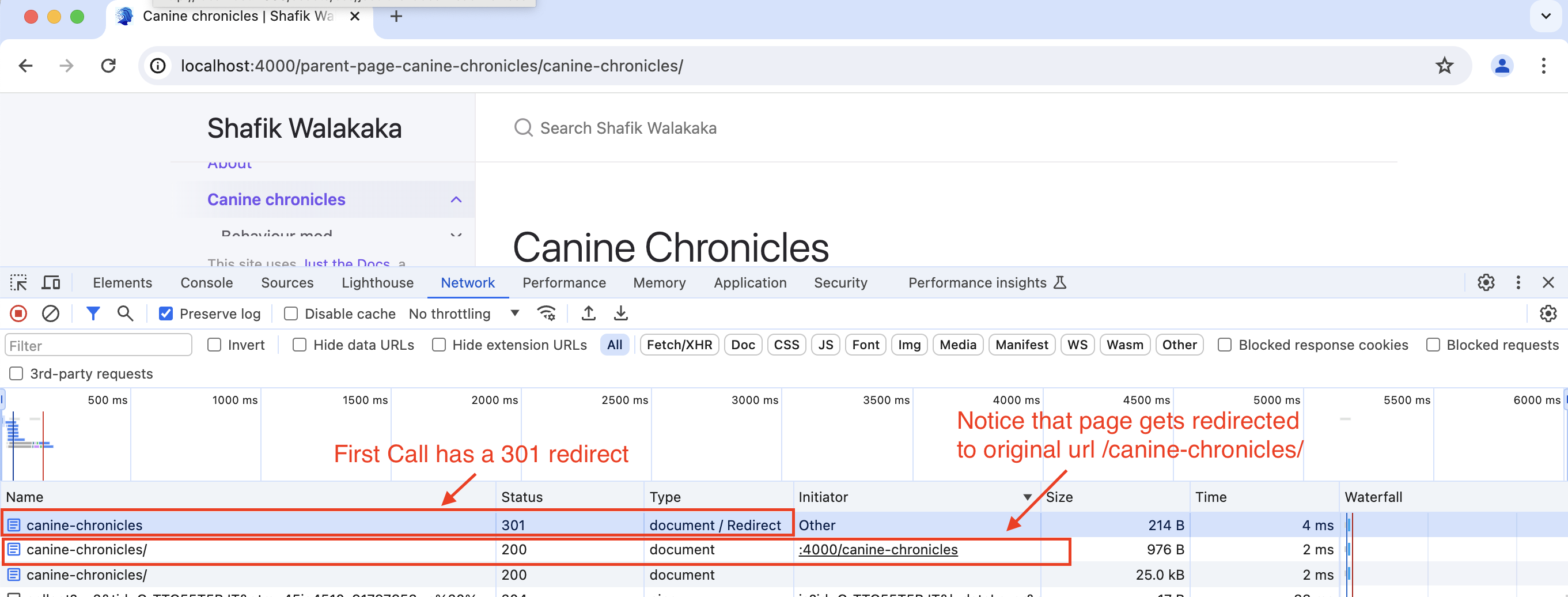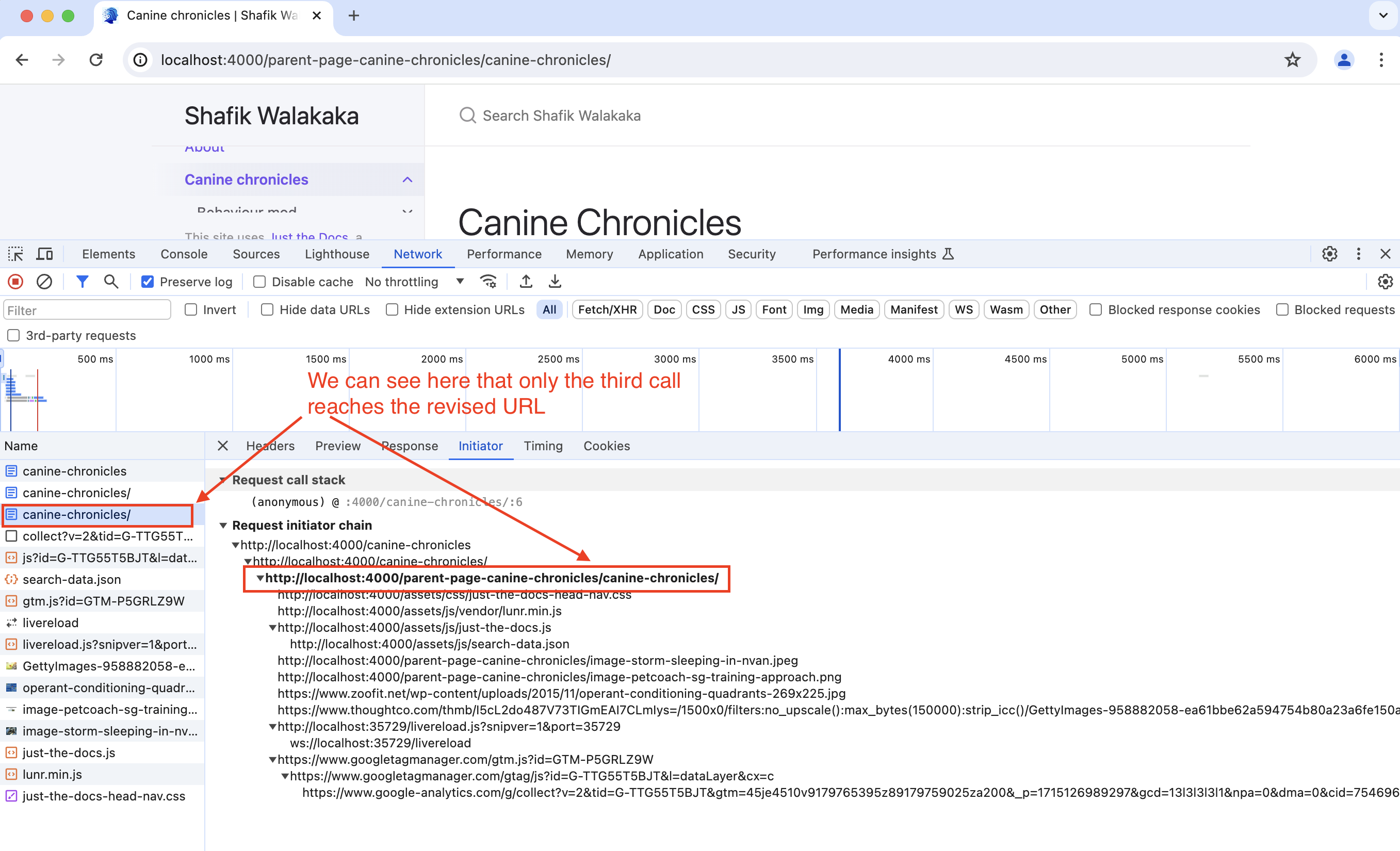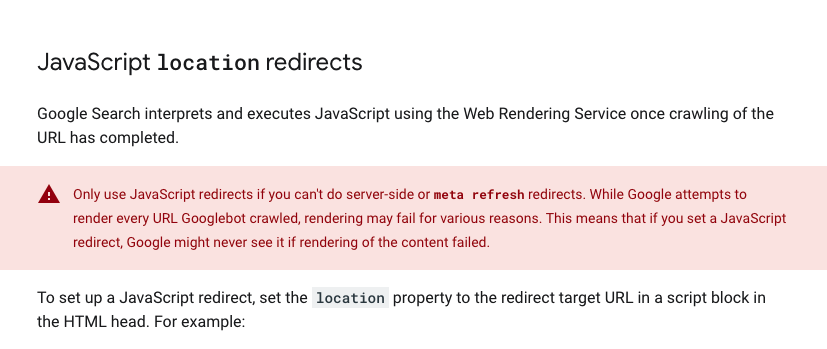Summary
I am currently maintaining my blog using the Jekyll Static Site Generator. To manage redirects, I use a plugin called the jekyll-redirect-from plugin.
Context
For the example that I have configured:
- Original URL is as follows:
/canine-chronicles/ - Revised URL is as follows:
/parent-page-canine-chronicles/canine-chronicles/
Findings
Interestingly, the plugin works as follows:
- Hits the Original URL and returns a 301 redirect
Note: The Location of the response is still/canine-chronicles - Since the Location of the response is still
/canine-chronicles, the browser is sent there again.
On the second call to/canine-chronicleswe receive a 200 response
See screenshot for reference:
- There is a third call that is subsequently made to the revised url:
/parent-page-canine-chronicles/canine-chronicles/
The page finally lands on the correct landing page
Clarification
Within the context of SEO, does this accurately signal to google that:
- The Original URL
/canine-chronicles/has been permanently moved - They should look for Revised URL
/parent-page-canine-chronicles/canine-chronicles/
Reason for concern: The 301 redirect still points to Original URL /canine-chronicles/
Do let me know if there is any further information I can provide, or any tests that I ca do. I have access to Google Search Console for this site etc.
Additional Notes
The Jekyll Redirect Plugin can be found at this Link
The Jekyll Redirect Plugin seems to use the "http-refresh" meta for redirection. Based on this documentation from search engine land, it should be handled.
But we'd still like to sense check against experience from the community whether these "http-refresh" meta redirection are indeed recognised by Google. Especially because the initial 301 redirect seems to be pointing to the wrong location (Orginal URL)


